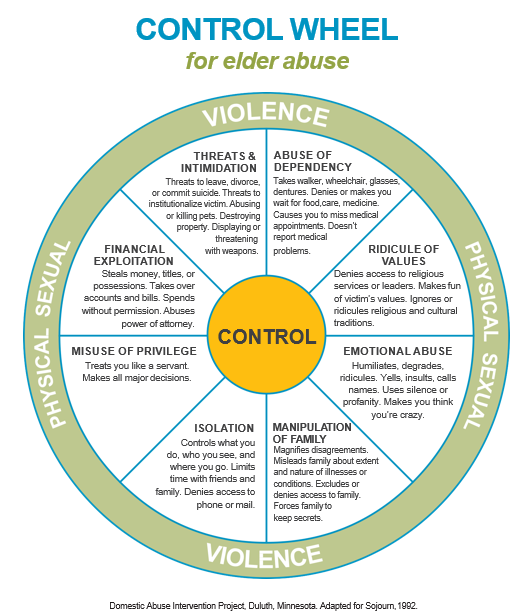I was involved in an unfortunate situation to see a loved one have her nest egg taken by someone she thought was a trustworthy caregiver. For the sake of anonymity, I’ll call the elder lady “Emma” and the predator “George.” George (in his 50s), who appeared to want to help Emma (in her 80s) shortly after her husband passed away, came into Emma’s life like a knight in shining armor. He said all the right things and appeared to be very caring…at the beginning. It wasn’t long after George fully gained Emma’s trust and got his name on her deed and trust account that his behavior changed.
George said that he would take care of Emma until her dying day. George knew Emma while her husband was alive, and he seemed nice. When Emma’s husband passed away, he came to visit her shortly after and within the next month or so, he moved into her home as her “caregiver.” Emma was deep in grief and entrusted him to make major decisions for her because she did not have the capacity to do so after losing her husband of 67 years. George provided her with what she needed, but his abrasive demeanor started to rub many people the wrong way. Emma noticed that there were people who no longer came to her home to visit. Church family no longer wanted to come to her home, and this was a challenge because besides going to church on Sundays and the occasional doctor’s appointments, Emma didn’t get out much and visitors were welcomed.
Fast forward to 10 years later, Emma (in her 90s now) found that she had to hide phone conversations and letters from George (now in his early 60s) because he had a way of turning people off with his controlling behavior and she didn’t want to lose anymore friendships. When Emma would ask about her money and how much she had in her trust account, he would respond by saying that she had plenty of money and he would take care of her for the rest of her life. Eventually, Emma found herself having conversations with George where he belittled her religious beliefs, he would yell at her and say that she was losing it (claiming she had Alzheimer’s Disease – something he couldn’t know was true), and he used legal jargon to threaten her close friends and church family members who tried to get him out of her life (upon Emma’s request).
When George didn’t get his way, he would instill fear in Emma and threaten to leave her with no one to care for her. Toward the end, he depleted her trust, savings, and most of her checking account; he isolated her; he was not transparent in how he made major decisions; he abused his privilege as her Power of Attorney; and Emma felt unsafe and hopeless. He confiscated her mail and kept her blind to the fact that he was working to get a second reverse mortgage on her home so he could keep the equity money for himself. After a third try, Emma gained my help to get George out of her life. He felt he still had totally control and when presented with being evicted and a restraining order, he threatened to partition Emma’s property and take his half of the trade market value of her home that Emma lived in for almost 45 years. The once seen knight in shining armor turned into the ultimate untrustworthy, manipulative liar and thief. Even with the much-needed help of Adult Protective Services, George was sly and got away with elder abuse, stole close to $400,000, and fled the country to avoid prosecution.
Please see this wheel to the recognize signs of elder abuse:

Even if you think your kūpuna (elder) is being well taken care of, please consider reaching out and being a companion because too many of our elders are being taken advantage of, and many are not saying anything out of fear. The most common offense of elder abuse is financial exploitation! Don’t think that because you see our kūpunas smiling that they’re really truly happy…maybe they are, but trust that it’s not always the case. Shame on those people who call themselves caregivers yet rob them and take advantage of our kūpuna’s love and trust. If you are able to reach out and just allow yourself to be present with our kūpunas, I’m sure that will touch their hearts in ways that are really needed when they’re being abused but don’t have the voice or courage to speak up.








Leave A Comment
You must be logged in to post a comment.